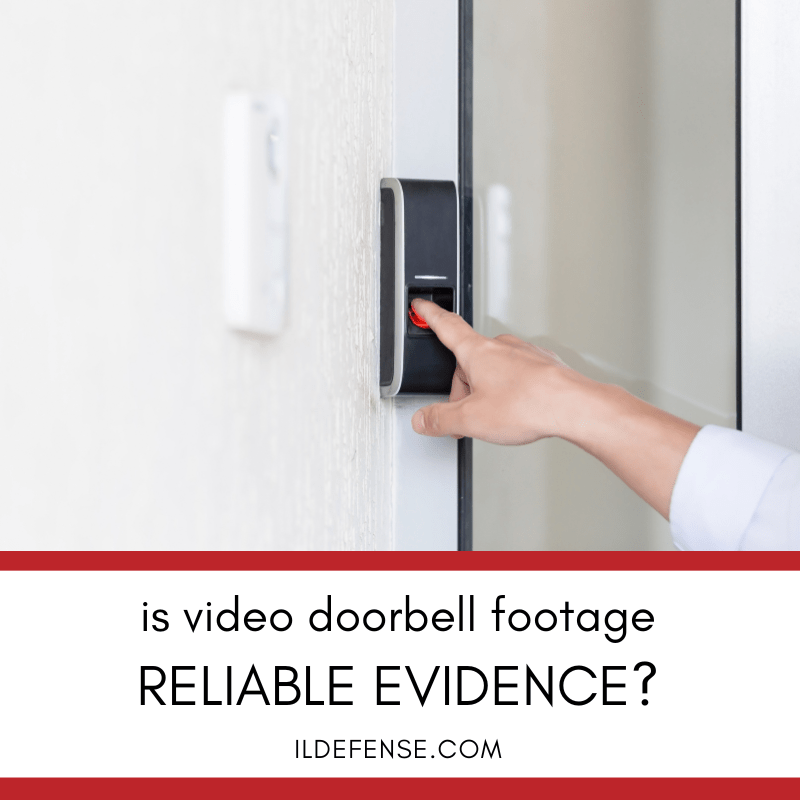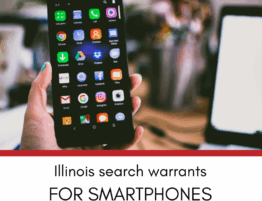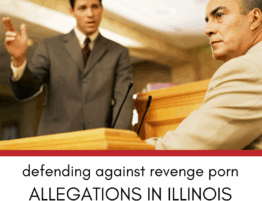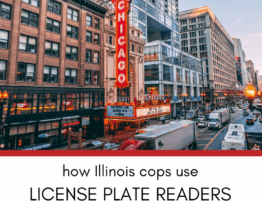

Across Illinois, Ring doorbells and other home surveillance systems have become as common as the porch lights they often sit beside. These devices capture everything from package thefts to neighborhood scuffles. Police and prosecutors increasingly seek out this footage, using it to identify suspects, build timelines, and support charges. But how reliable is doorbell video in a courtroom? For defendants, the answer is nuanced. While jurors tend to trust video more than eyewitnesses, technical flaws and legal limits mean Ring recordings are not foolproof.
Why Ring Doorbell Footage Appeals to Prosecutors
Video feels objective. Jurors can watch a clip and believe they are seeing events exactly as they happened. For prosecutors, Ring footage provides:
-
Visual identification: Capturing faces, clothing, or distinctive movements.
-
Timeline evidence: Time-stamped clips showing when someone approached or left a property.
-
Corroboration: Supporting a witness’s account of events.
-
Neighborhood reach: A single incident may be captured on multiple homes, providing a mosaic of perspectives.
Because Illinois police often partner with residents or request footage through community programs, Ring clips have become a staple in theft, burglary, and assault cases.
Technical Weaknesses of Ring Footage
Despite its persuasive power, Ring video is not flawless.
Resolution and Lighting
Cameras may produce grainy footage, especially at night or in poor weather. Identifying faces from shadowy video can be speculative.
Field of View
Wide-angle lenses can distort size, distance, or speed, making it hard to judge exactly what happened.
Compression and Cloud Storage
Ring stores many clips in the cloud. Compression can reduce quality, and questions may arise about whether the file presented in court is identical to the original.
Triggered Recording
Most Ring devices only record when triggered by motion. Key moments before or after the trigger may be missing, leading to incomplete narratives.
Legal Considerations in Illinois
Authentication
Before video can be admitted, prosecutors must show it is authentic—that the camera was working, the footage has not been tampered with, and the images depict what they claim. A homeowner or officer usually testifies to lay this foundation.
Hearsay Issues
If the video includes audio, statements captured may raise hearsay concerns. Courts must decide if they fall under an exception or are inadmissible.
Chain of Custody
Because many Ring clips are shared via email or cloud links, defense attorneys scrutinize how the file was collected and whether metadata supports its integrity.
Privacy Concerns
Illinois law requires consent for audio recording in many contexts. While most courts admit Ring audio captured outside homes, questions may arise if private conversations on sidewalks or porches are recorded without knowledge.
How Defense Lawyers Challenge Ring Evidence
Defense attorneys in Illinois often highlight the limitations of doorbell video. They may:
-
Question whether the person in the clip is actually the defendant. Poor quality, shadows, or generic clothing make misidentification possible.
-
Argue that the time stamp is inaccurate due to incorrect device settings.
-
Raise the possibility of tampering, intentional or otherwise, given that homeowners control what clips are shared.
-
Emphasize missing context. A video may show someone approaching a porch but not what happened before or after.
By challenging reliability, the defense can reduce the weight jurors give the footage.
Jury Perception of Video Evidence
Jurors tend to give video evidence significant weight. Even flawed recordings can overshadow testimony. Judges may instruct jurors to consider video alongside other evidence, but once they see a clip, it often dominates deliberations. This makes it critical for defense teams to prepare expert testimony on video quality, compression, and perspective.
Practical Advice for Defendants
If Ring footage is part of your case:
-
Do not assume the video is decisive. Quality, context, and authenticity matter.
-
Ask your lawyer to review the raw file, not just a compressed copy or a homeowner’s clip.
-
Consider hiring a video forensic expert to analyze lighting, pixelation, and timestamps.
-
Remember that gaps in video coverage may support your defense.
Ring doorbell footage has become a common piece of evidence in Illinois courts, but its reliability depends on technical quality, proper authentication, and fair interpretation. Prosecutors treat it as powerful proof, while defense attorneys see fertile ground for challenge. For defendants, the key is not to assume video equals guilt but to insist on scrutiny of every second and every pixel.
Do You Need to Talk to an Attorney?
If you’ve been accused of a crime, we may be able to help you – and don’t worry: It’s completely confidential. Call us at 847-920-4540 or fill out the form below to schedule your free, private consultation with an experienced and skilled Chicago criminal defense attorney now.
Contact Us
"*" indicates required fields








